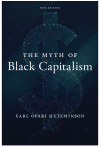What’s going on
A new poem by Marge Piercy. | more…
A new poem by Marge Piercy. | more…

John Bellamy Foster presents a rogue’s gallery of the fascist ideologues insidiously pushing the MAGA agenda, from the Heritage Foundation and its Project 2025 to neo-Nazi YouTubers and cultural influencers. “The political and ideological successes of the MAGA movement,” Foster writes, “were made possible in part by a liberal-left that abandoned the working class economically and politically.” | more…

John Bellamy Foster revisits and critiques the contention that the U.S. capitalist class is not a “governing” class, or indeed a class-conscious bloc in any sense. However, he writes, the fact that the ruling-class oligarchy is now openly wielding power on the national and international stages as part of the Trump regime shows that the overwhelming political influence of the capitalist class is no longer in dispute as this alignment pushes the country deeper into neofascism. | more…

Against a backdrop of political turmoil and a popular uprising, Aasim Sajjad Akhtar examines how the contradictions of liberal democracy have played out in Pakistan. Exploring the dynamic between the U.S.-backed, militarized Pakistani political elite and the rise of reactionary politician Imran Khan, Akhtar shows how Khan has employed empty anti-imperialist rhetoric to mobilize a discontented populace—and how this could be counteracted with a genuine anti-imperialist movement. | more…

A new poem by Marge Piercy. | more…

Shakespeare’s Richard III famously immortalized the eponymous king as a scoundrel and tyrant, thirsty for power and blood. Using economic data spanning centuries, Thomas Lambert questions the truth of this spurious reputation: Was Richard III indeed a murderous despot bent on absolute rule? Or a myth propagated by Tudor allies aiming to ingratiate themselves to the new dynasty? | more…

In an interview with Brazilian magazine Margem Esquerda, John Bellamy Foster shares with Fabio Querido, Maria Orlanda Pinassi, and Michael Löwy the formative experiences that contributed to his work as a young activist and, later, a preeminent scholar of ecological Marxism. The interview concludes with a message to the ecological left in Brazil and elsewhere: “Whatever solutions there are to the present planetary crisis must, in historical-materialist terms, arise from concrete social formations, on the basis of which the new revolutionary transformations will take place.” | more…

What is “Red Africa”? Through an extended treatment of Kevin Ochieng Okoth’s Red Africa: Reclaiming Revolutionary Black Politics (Verso, 2023), Vijay Prashad and Mikaela Nhondo Erskog illuminate the potential for a reinvigorated socialist politics in Africa. In turning away from Afropessimism and Decolonial Studies, the authors catalog the on-the-ground realities at play in pan-African and Marxist social movements today. | more…

The Myth of Black Capitalism, Earl Ofari Hutchinson reflects on the relevance of his work more than fifty years after its initial publication. Even despite the promotion of wealthy Black individuals as model capitalists and COVID recovery schemes purported to help Black entrepreneurs, “Little had changed except the desperation of countless numbers of near penniless, distressed Black small business owners.” | more…

In a world of convergent crises, leading voices have called for radical changes to food, financial, and energy systems. However, these fail to account for a deeper systemic crisis: unfettered and accelerating of capital accumulation. In this article, M. Graziano Ceddia and Jacopo Nicola Bergamo provide a more comprehensive narrative, one which emphasizes capital as a social relation—and the potential of the environmental proletariat to dismantle its dominance. | more…

A new poem by Marge Piercy. | more…

Having just written his groundbreaking book, The American Revolution, Detroit autoworker James Boggs sat down in the early 1960s to continue his study of revolution. Boggs looked at the Black Power uprisings then beginning in the United States within the global context of the overthrow of rightwing puppet regimes in Asia, Africa, and Latin America. In Racism and the Class Struggle, Boggs produced thirteen powerful and prescient chapters that wrestled with topics such as the specific character of American capitalism and its intricate relationship to American democracy, the historic mission of the Black revolution in the United States, and the need for the 1960s Black
Notifications